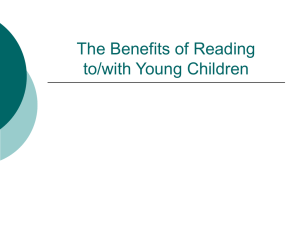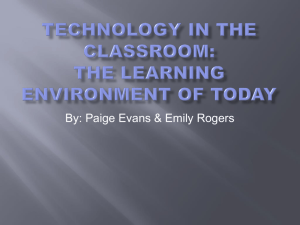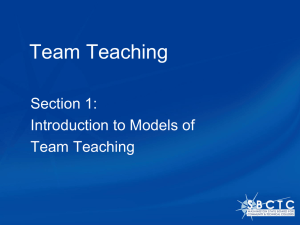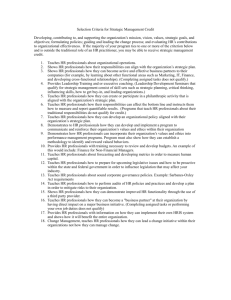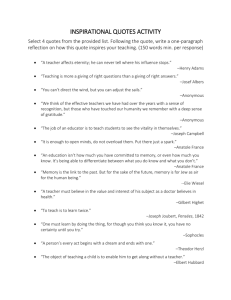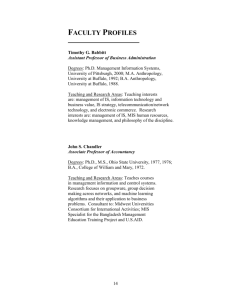MAT Mentor Teaching Models - Morehead State University
advertisement
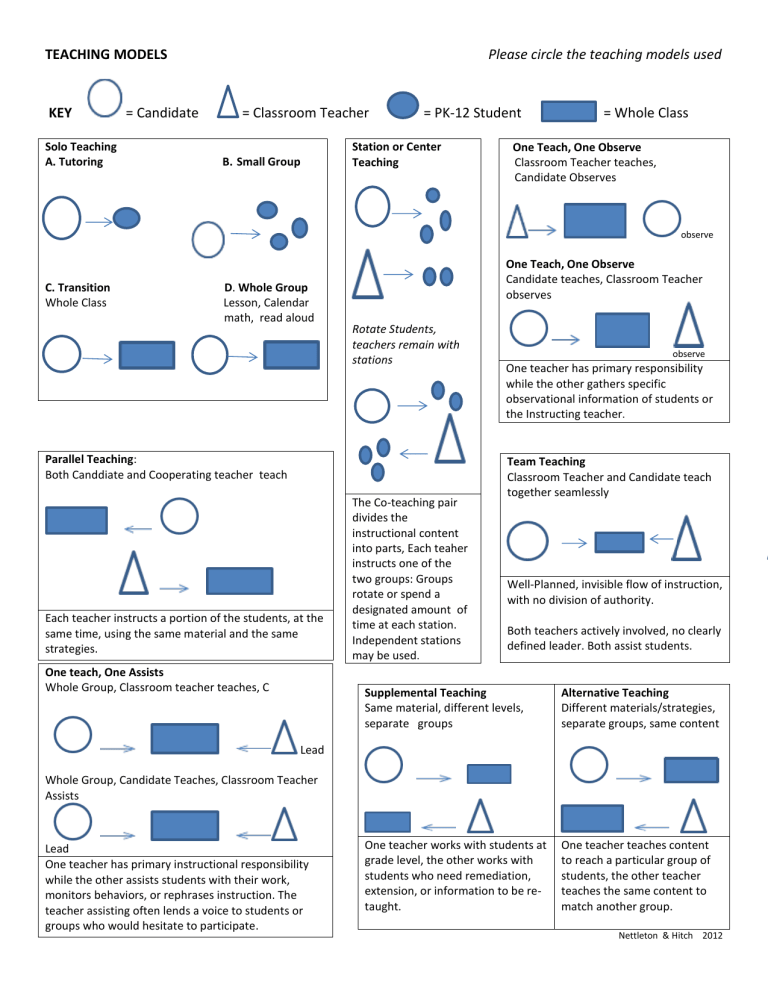
TEACHING MODELS KEY Solo Teaching A. Tutoring = Candidate Please circle the teaching models used = Classroom Teacher B. Small Group = PK-12 Student Station or Center Teaching = Whole Class One Teach, One Observe Classroom Teacher teaches, Candidate Observes observe C. Transition Whole Class D. Whole Group Lesson, Calendar math, read aloud One Teach, One Observe Candidate teaches, Classroom Teacher observes Rotate Students, teachers remain with stations Parallel Teaching: Both Canddiate and Cooperating teacher teach Each teacher instructs a portion of the students, at the same time, using the same material and the same strategies. One teach, One Assists Whole Group, Classroom teacher teaches, C The Co-teaching pair divides the instructional content into parts, Each teaher instructs one of the two groups: Groups rotate or spend a designated amount of time at each station. Independent stations may be used. observe One teacher has primary responsibility while the other gathers specific observational information of students or the Instructing teacher. Team Teaching Classroom Teacher and Candidate teach together seamlessly Well-Planned, invisible flow of instruction, with no division of authority. Both teachers actively involved, no clearly defined leader. Both assist students. Supplemental Teaching Same material, different levels, separate groups Alternative Teaching Different materials/strategies, separate groups, same content One teacher works with students at grade level, the other works with students who need remediation, extension, or information to be retaught. One teacher teaches content to reach a particular group of students, the other teacher teaches the same content to match another group. Lead Whole Group, Candidate Teaches, Classroom Teacher Assists Lead One teacher has primary instructional responsibility while the other assists students with their work, monitors behaviors, or rephrases instruction. The teacher assisting often lends a voice to students or groups who would hesitate to participate. Nettleton & Hitch 2012
